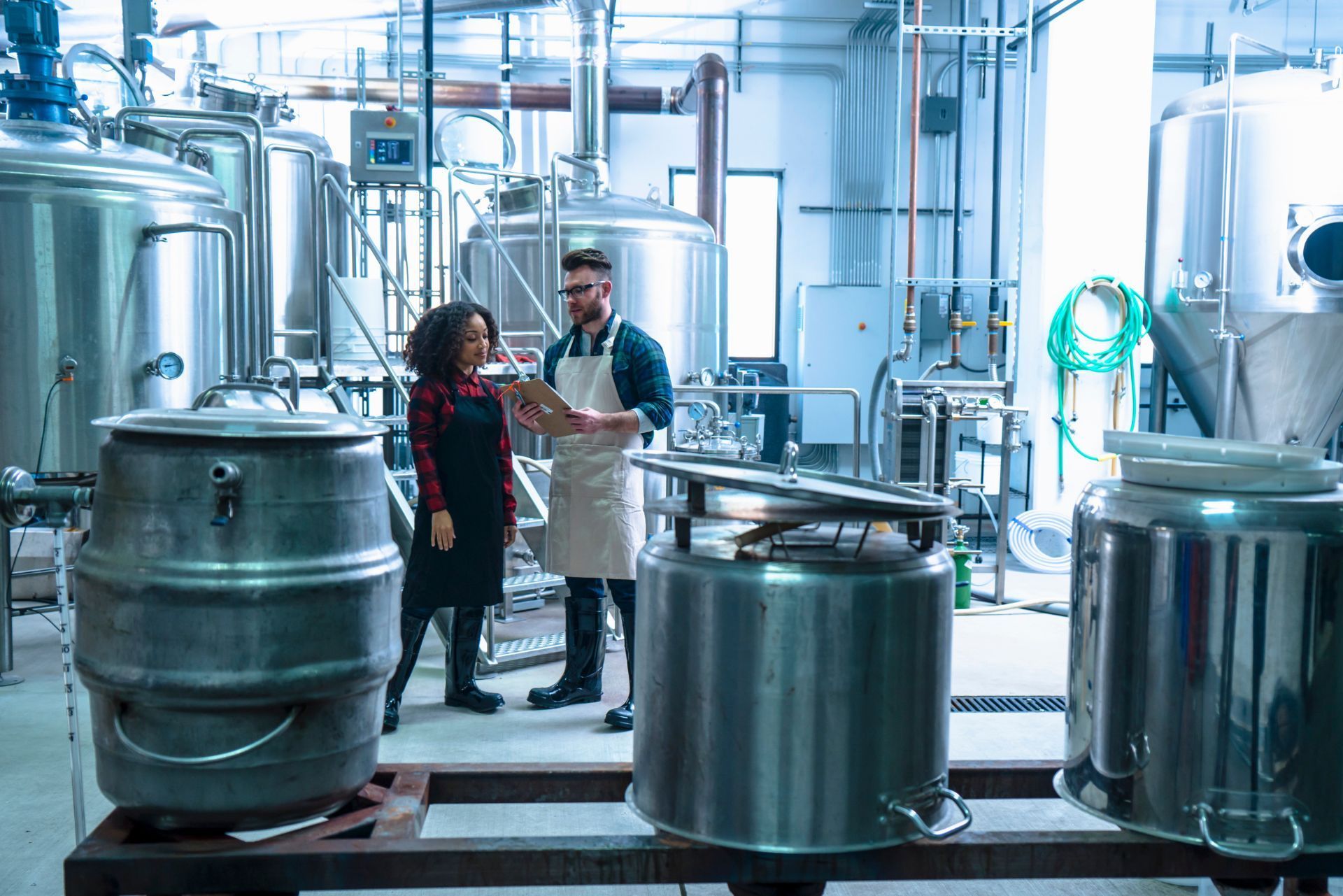Common Business Insurance Policies
By: Matt Larsen
Owner of Capstone Insurance Group & Contractor Insurance Advisor
763-242-1668
Index
Contact Us
Phone
Location
In the vibrant world of craft brewing, Minnesota stands out with its rich tapestry of breweries, each offering unique flavors and experiences. However, with the joys of brewing come the inevitable risks and challenges. Ensuring that your brewery is adequately protected is paramount, and this is where brewery insurance comes into play. This comprehensive guide explores everything you need to know about brewery insurance in Minnesota, from understanding the basics to selecting the right coverage for your business.
Understanding Brewery Insurance
What is Brewery Insurance?
Brewery insurance is a specialized form of business insurance tailored to meet the unique needs of breweries. It encompasses a range of coverages designed to protect against the various risks associated with brewing, distributing, and serving beer. These risks can include property damage, liability claims, equipment breakdowns, and more.
Given the complexity of brewing operations, standard business insurance policies often fall short of providing adequate coverage. Brewery insurance fills this gap by offering a comprehensive suite of protections that address the specific challenges faced by breweries.
Why is Brewery Insurance Important?
The brewing industry is fraught with potential hazards, from equipment malfunctions to liability issues arising from serving alcohol. Without proper insurance, a single incident could lead to significant financial losses or even the closure of your business. Brewery insurance provides peace of mind, allowing you to focus on crafting excellent beer while knowing that your business is protected against unforeseen events.
Moreover, having the right insurance coverage is often a requirement for obtaining licenses and permits necessary to operate a brewery in Minnesota. It demonstrates to regulators, investors, and partners that you are committed to responsible business practices.

Types of Coverage in Brewery Insurance
Property Insurance
Property insurance is a fundamental component of brewery insurance, covering damage to your physical assets such as buildings, brewing equipment, and inventory. This coverage protects against risks like fire, theft, vandalism, and natural disasters, ensuring that your brewery can recover quickly from unexpected events.
In addition to standard property coverage, breweries may also need specialized protection for unique assets like fermentation tanks and kegs. It's essential to work with an insurer who understands the intricacies of the brewing industry to ensure comprehensive coverage.
General Liability Insurance
General liability insurance protects your brewery from third-party claims of bodily injury, property damage, and advertising injury. This is crucial for breweries, which often host events, tours, and tastings that involve public interaction. Liability claims can arise from slip-and-fall accidents, allergic reactions, or even disputes over intellectual property.
Having robust general liability coverage is essential for safeguarding your brewery's reputation and financial stability. It covers legal fees, settlements, and medical expenses, allowing you to focus on running your business without the constant worry of potential lawsuits.
Liquor Liability Insurance
Liquor liability insurance is a must-have for any brewery that serves alcohol. This coverage protects against claims related to alcohol consumption, such as injuries or damages caused by an intoxicated patron. In Minnesota, breweries are legally responsible for the actions of their patrons, making liquor liability insurance a critical component of your risk management strategy.
Without liquor liability insurance, your brewery could face substantial legal and financial repercussions if a patron causes harm after leaving your establishment. This coverage ensures that you are protected against such claims, allowing you to serve your craft with confidence.
How to Choose the Right Brewery Insurance
Assess Your Brewery's Needs
Every brewery is unique, with its own set of risks and requirements. The first step in choosing the right insurance is to conduct a thorough assessment of your brewery's operations. Consider factors such as the size of your facility, the volume of beer produced, the types of events hosted, and any additional services offered, like food or merchandise sales.
Understanding these aspects will help you identify the specific coverages you need and ensure that your policy is tailored to your business. An experienced insurance agent can assist in this process, providing insights and recommendations based on industry knowledge.
Compare Insurance Providers
Not all insurance providers offer the same level of expertise or coverage options for breweries. It's essential to compare different insurers, focusing on their experience in the brewing industry and the comprehensiveness of their policies. Look for providers who specialize in brewery insurance and have a proven track record of serving similar businesses.
When evaluating insurers, consider factors such as customer service, claims handling, and the flexibility of their policies. Reading reviews and seeking recommendations from other brewery owners can also provide valuable insights into the reliability and quality of potential providers.
Review Policy Details Carefully
Once you've selected a potential insurer, it's crucial to review the policy details carefully. Pay close attention to coverage limits, exclusions, and any additional endorsements that may be necessary for your brewery. Ensure that the policy provides adequate protection for all aspects of your business, from equipment and inventory to liability and employee coverage.
Don't hesitate to ask questions or seek clarification on any terms or conditions that are unclear. A reputable insurer will be transparent and willing to explain the nuances of your policy, ensuring that you have a clear understanding of your coverage.

Additional Considerations for Minnesota Breweries
Compliance with State Regulations
Operating a brewery in Minnesota requires compliance with various state regulations, including those related to insurance. Ensure that your insurance policy meets all legal requirements, such as minimum coverage limits for liquor liability. Staying informed about changes in state laws and regulations is crucial for maintaining compliance and avoiding potential fines or penalties.
Working with an insurance provider familiar with Minnesota's regulatory landscape can help you navigate these requirements and ensure that your brewery remains in good standing with state authorities.
Seasonal and Event Coverage
Many Minnesota breweries host seasonal events, festivals, and special releases that attract large crowds. These events can introduce additional risks, such as increased liability and property damage. Consider adding event-specific coverage to your insurance policy to protect against these heightened risks.
Event coverage can include additional liability protection, cancellation insurance, and coverage for temporary structures or equipment rentals. Discuss your event plans with your insurer to determine the best approach for ensuring comprehensive protection during these occasions.
Employee Coverage
Your employees are a vital part of your brewery's success, and protecting them is essential. Consider adding workers' compensation insurance to your policy to cover medical expenses and lost wages in the event of a work-related injury or illness. This coverage is often required by law and demonstrates your commitment to employee well-being.
Additionally, consider offering health insurance and other benefits to attract and retain top talent in the competitive brewing industry. A comprehensive employee benefits package can enhance job satisfaction and contribute to a positive workplace culture.
Conclusion
Securing the right insurance coverage is a critical step in safeguarding your Minnesota brewery against the myriad risks inherent in the brewing industry. By understanding the various types of coverage available and carefully selecting a policy that meets your unique needs, you can ensure the long-term success and stability of your business. Whether you're a new brewery just starting out or an established name in the Minnesota craft beer scene, investing in comprehensive brewery insurance is a wise decision that will pay dividends in peace of mind and financial security.






